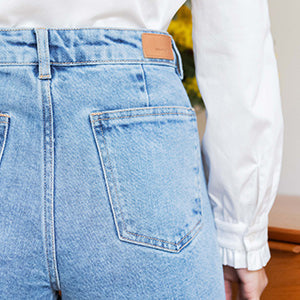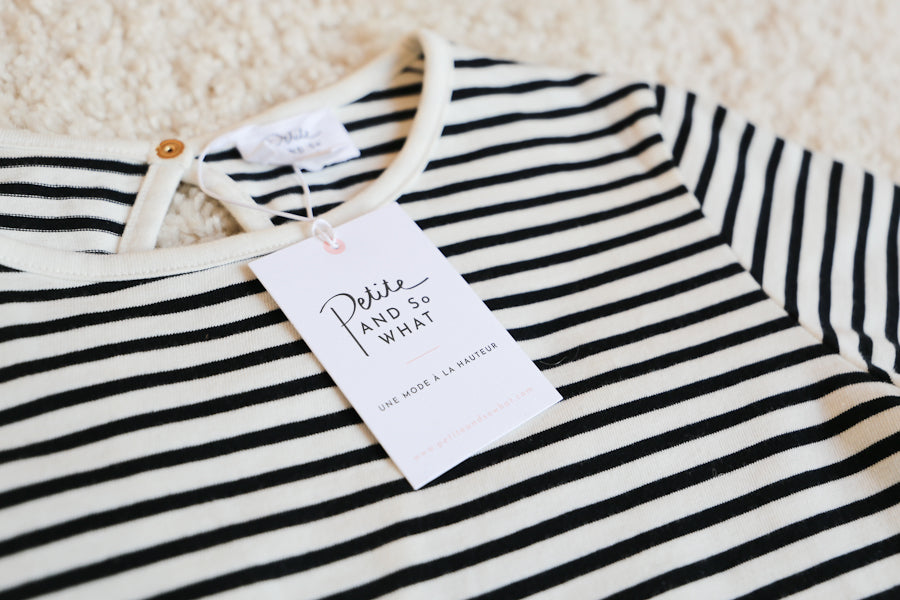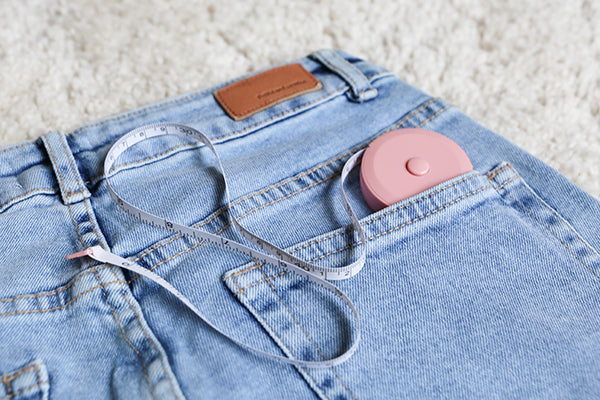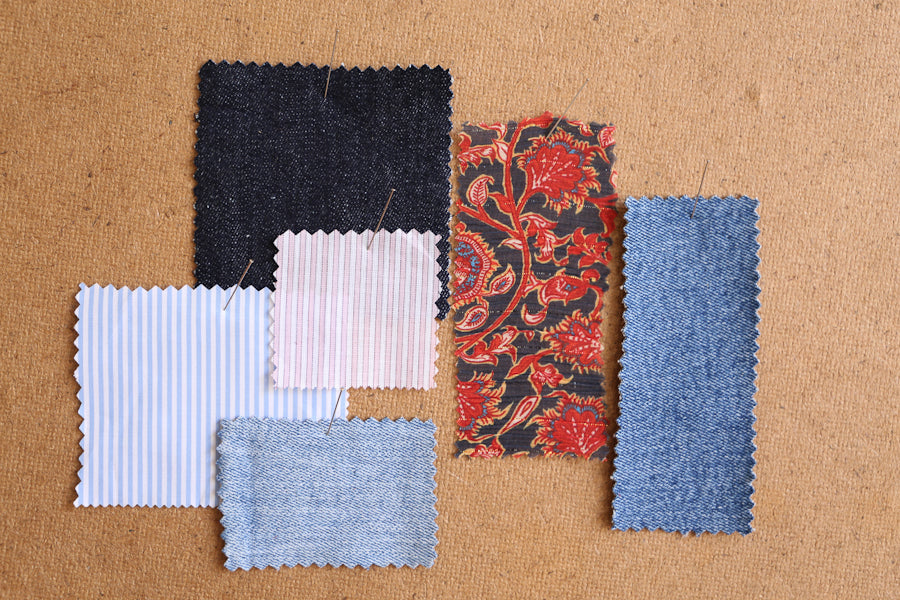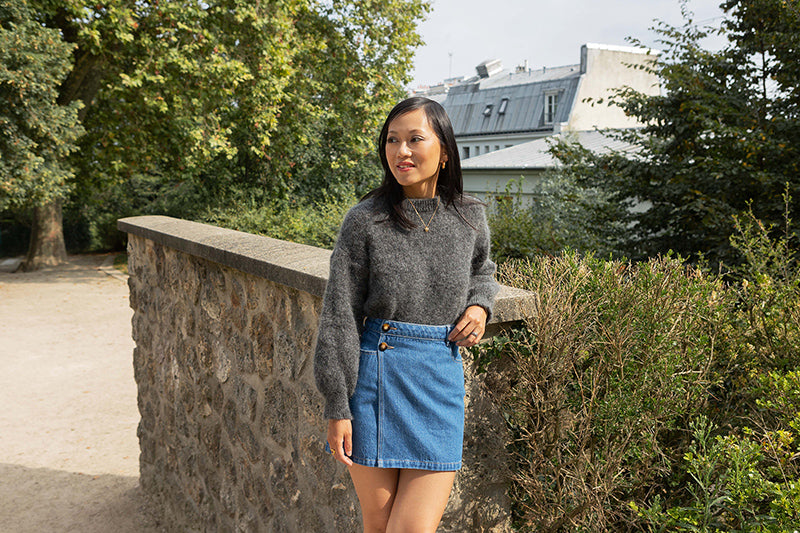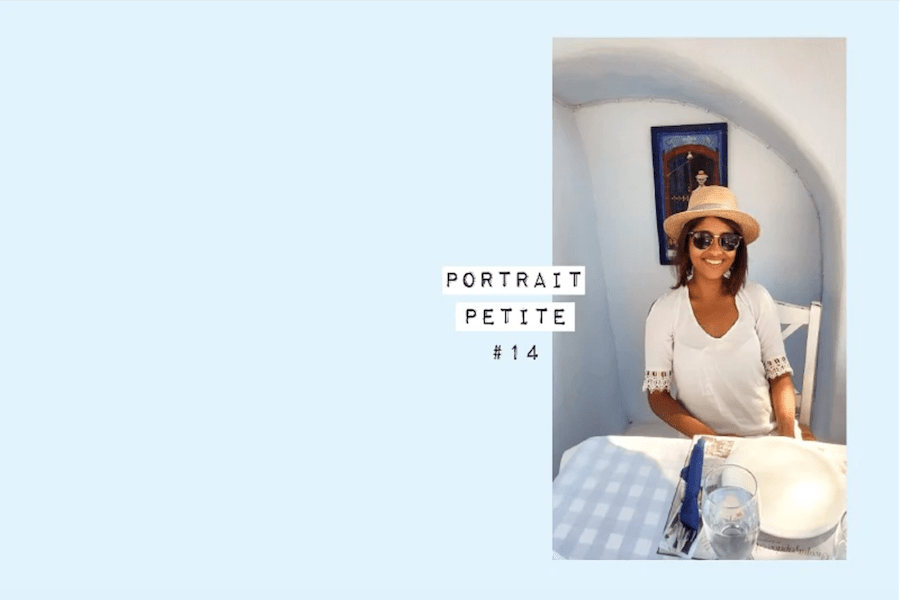Changeons nos modes de consommation et commençons dès aujourd’hui parce qu’on n’a pas de planète B. On est dans un état d’urgence et il faut vraiment commencer à agir !
Can you start by introducing yourself?
Je m’appelle Karishma, j’ai 30 ans, je suis Indienne et je vis en France depuis quatre ans et demi. Je travaille dans le domaine de l’environnement et à côté de mon travail, je suis une passionnée de mode durable et de psychologie. Je lis beaucoup de livres sur ces sujets. Et j’aime également beaucoup cuisiner et manger, bien évidemment !
Can you tell us about your background?
J’ai commencé mes études en Inde. J’ai une licence en gestion et stratégie. Puis, j’ai travaillé pour l’Ambassade de France en Inde pendant trois ans. J’aidais les entreprises françaises à s’implanter en Inde. J’ai ensuite poursuivi ma formation par un Master 1 et un Master 2 en économie environnementale (spécialisation développement durable RSE) en France. Aujourd’hui, je travaille pour un distributeur de produits énergétiques dans le département climat. Je les aide dans la transition énergique de leur business model pour notamment réduire les émissions.
Vivre en France, est-ce que c'était un projet de longue date ?
Quel est l'élément déclencheur qui t'a poussée à t'orienter dans le domaine de l'environnement ?
Il y a plusieurs choses :
- A l’école, très jeune, on a commencé à parler des Nations Unies et du protocole de Kyoto. J’ai tout de suite été intriguée par ces sujets et j’ai eu besoin d’en savoir plus.
- En 2014, je suis venue en France dans le cadre d’un échange d’un mois organisé par l’association Lions Club. Le thème de cet échange était l’environnement. J’ai visité le Grande Est, à travers ce fil conducteur : sites produisant des énergies nouvelles, sites qui protègent la biodiversité, centrales nucléaires, etc. Ces sujets m’ont passionnée.
- De retour en Inde, j’ai regardé le documentaire « the True Cost ». Et ça a été l’élément déclencheur. C’est à partir de ce moment que j’ai décidé de m’orienter vers le domaine de l’environnement.
En tant que spécialiste de l'environnement, est-ce que tu peux nous résumer en quelques mots les enjeux majeurs liés à l'environnement de nos jours. Quelles sont les urgences ?
Quels sont les conseils que tu nous donnes pour réduire notre impact environnemental ?
Tu es une personne passionnée et engagée. A côté de ton activité professionnelle, tu fais du bénévolat au sein du collectif Démarqué. Peux-tu nous en dire plus ? Quelles sont tes actions au quotidien au sein de ce collectif ?
Finally, a few questions to get to know you better:
What's your favorite thing to do in your spare time?
Je viens d’arriver à Paris récemment. Entre les manifestations, les grèves, la Covid, je n’ai finalement jamais vraiment profité de ma vie Parisienne. Mon objectif aujourd’hui : rattraper le retard que j’ai pris ! Je profite de toutes les activités culturelles – concerts, musées, expositions, etc.
J’adore le sport aussi : le fitness / vélo, la randonnée. J’aime aussi lire, danser (du bollywood !) et cuisiner.
Ta tenue de tous les jours ?
Je porte des tenues très simples : jupe/pantalon et tee-shirt, ou robe. Je ne suis pas très bijoux.
Your favorite piece at Petite and So What?
The three things that never leave your handbag?
Mon porte-monnaie, mes clés et mon portable.
What's your latest favorite?
Un cours de l’université de Yale « The science of well-being » - la science de la joie. Le cours donne des clés : pourquoi les gens ne sont pas heureux et qu’est-ce qu’il faut faire dans la vie pour l’être ? Ce cours m’a changé la vie et m’a redonné la joie de vivre. J’étais très mal suite aux confinements.
Any message you'd like to pass on to all the " petites " who read your book?
Changeons nos modes de consommation et commençons dès aujourd’hui parce qu’on n’a pas de planète B. On est dans un état d’urgence et il faut vraiment commencer à agir !

